This past Tuesday I shared some high resolution jpgs of detailed areas of historical paintings to a class I am teaching. It reminded me how much I love to get up close and personal with works of art. These intimate inspections not only allow us to better understand how they were created, but in closing in on the art, we are placing ourselves in the physical space once occupied by the artwork’s originator. This is all the more true when visiting works in a museum, gallery or exhibition. The visceral experience and ‘high’ I receive from these interactions with unique, physical objects are the main reason I will likely never become a digital artist – I have conditioned myself to fall in love with physical objects of desire.
This is not an assessment of digital art, but rather speaks to the approach I have taken towards painting during the development of my career as an illustrator and painter. The treatment of my paintings and conversion of them into commercial designs during the first year of my professional career drove home the fact that these illustrations were nothing more than part of a tool in marketing – to be manipulated and distorted to the needs of my client in selling their product. This use of my art reconditioned my expectations regarding illustration commissions from that of seeking pleasure in seeing my art on a book cover or magazine distributed worldwide, to that of seeking pleasure in the sheer process of making the original painting in oils. Rather than falling in love with the image, I fell in love with the object. Nothing more simple as that has driven my entire career.
Thus while this conditioning has worked for me, the same ‘object love’ may not work for millions who are in the midst of the digital age creating art on the computer. Your challenge is to fall in love with your art in a different manner. For when you are passionate about your art, it is easy to spend an entire day in the physical proximity of that which you so dearly desire…
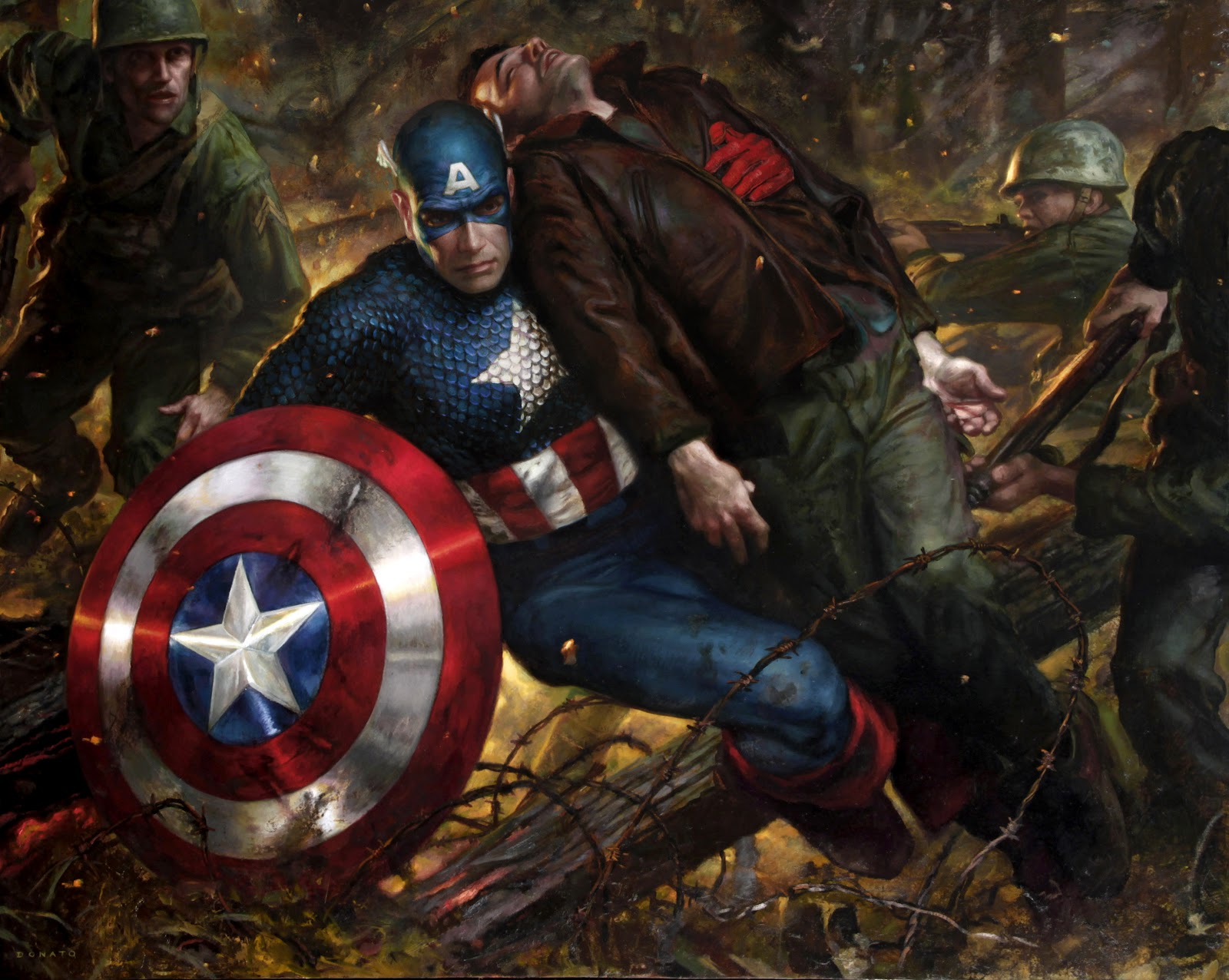 |
| Captain America : Duty 48″ x 36″ Oil on Panel 2012 |
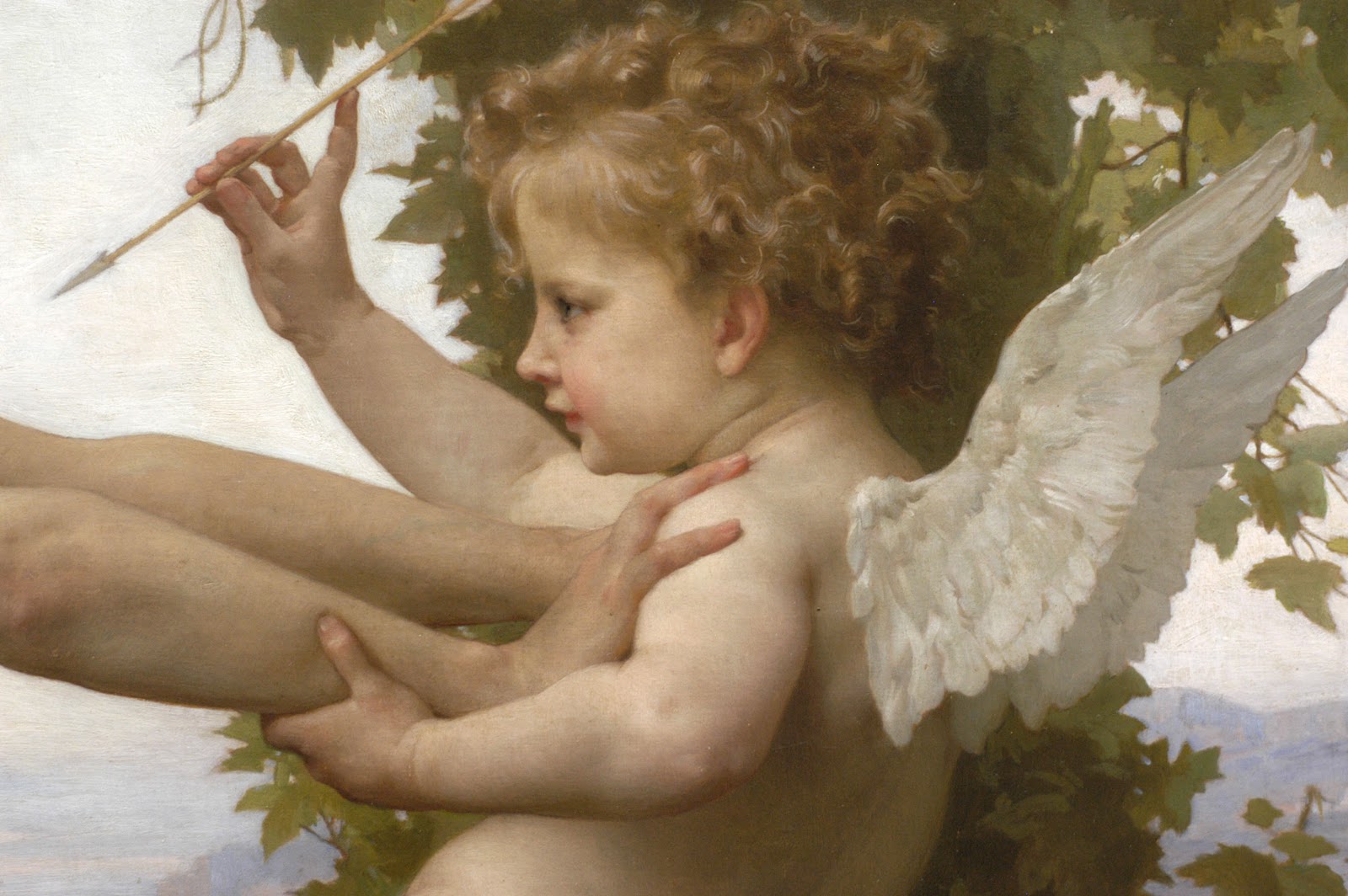 |
| William Bouguereau detail 1880 |


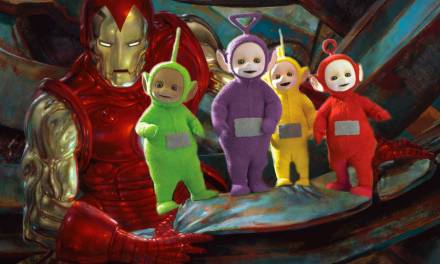
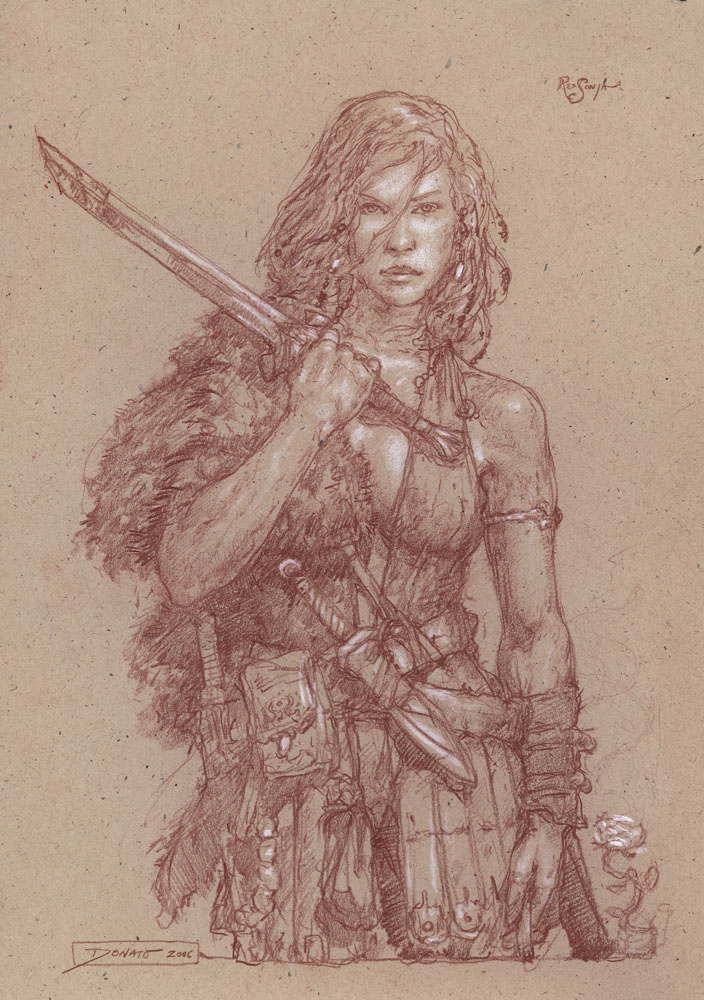
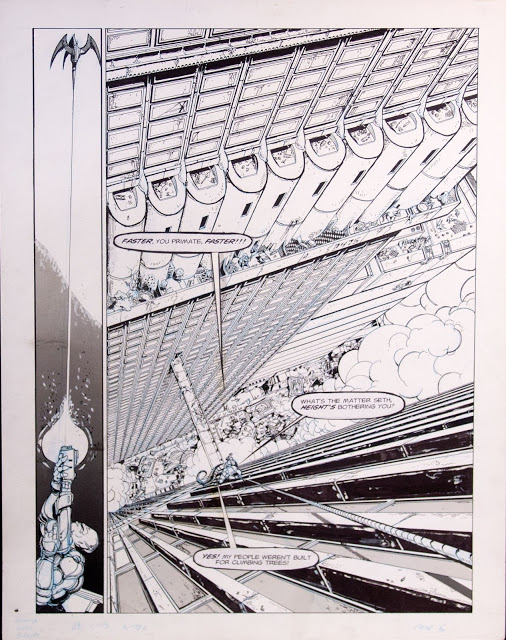
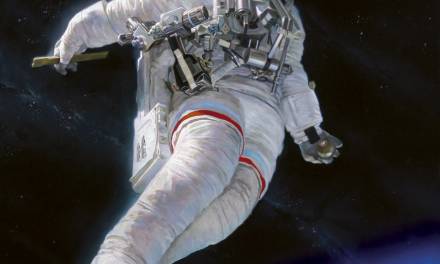

Thanks Donato – this is something I struggle with at present. After painting in oils and sculpting in various materials for over 30 years I find a myself keenly interested in digital processes. I bought a Wacom tablet, learnt Photoshop techniques well enough to get a good result(Painter beckons..) However I find something 'missing'. I've realised (for me anyway) that I have been missing those elements found within traditional art making that elude the digital – the texture of linen canvas and fine papers, the smell of turps, oil, gesso, (rabbit skin sometimes!), the slippery qualities of paint and the sound of brushwork – even the clinking of brushes in holding jars. As for the beauties of charcoal dusting itself onto the paper/canvas and even onto yourself is a total experience.
You talk about falling in love with the object, well this is what we do with others when we fall in love. It's never just the image of our loved one, it's the total experience – their smell, tone of voice, their inflections, skin texture etc. In other words we use ALL our senses to 'fall in love'.
I love digital too, but absolutely not in the same way as paint. Digital allows me infinite undoes and changes but always there is a little barrier, a limitation between myself and the potential beloved.
Thanks for a great subjetc!
Ian and Donato, I think it is exactly that which has been holding me back from exclusively working digital. Although I think for a lot of people it is also the love of the process of getting the image right, no matter what media they use.
Thank you for the comments Ian. I want to state that this process of 'falling in love' is always about conditioning, whether it be through the experiences you have with your traditional materials working in the studio, or chatting with someone for months on end on the phone before finally meeting the. We all create long term relationships with processes or rituals. Historically it has been through physical objects, and now with the digitization of an incredible mass of information and inputs, that is throwing our cultural conditioning for a tail spin. I can imagine a similar event happened when the printed book replaced the bardic story tellers.
It will be interesting to see where and how our minds and culture adapt to this new way of falling in love…
D
Man, you guys all hit the nail on the head. I started out primarily a digital artist, but I love getting out the illustration board and oil paints because of precisely the reasons you stated, Donato. There's a satisfaction with the physical object in real space that comes with a traditional painting that I just haven't been able to replicate with digital work. And in fact, I think most of the joy I get from digital painting is centered around how much I am able to make it look traditional. Anyway, another great discussion, Donato!
Donato, your are the MAN.
nice blog !!!
Tried to work digital, but I always come back to the traditional mediums. Great read.
Thank you for this, Donato. As someone who started in traditional art, switched to digital in college with Photoshop and all that jazz, now I find myself drawn to, well, drawing–and painting. It's the physicality I miss, to be able to TOUCH my art, and it's nice to know I'm not alone.
This is a wonderful blog, by the way. (Long time reader, first time poster.)
Doantao after reading all these posts I've just remembered the brilliant cover you did for the Tor novel, 'Imager' by L.E.Modesitt, Jr. Guys if you haven't seen it, have a look – fantastic colour and tone work plus a real capturing of an artist focussed in deep concentration.
The connection here is that the novel is about (I've only read the first in the series)a young apprentice painter who discovers he has the gift of 'Imaging' things into existance by shear will – he leaves the painting trade after acquiring some considerable skill to further train as an imager. Earlier he manifests directly onto the canvas a rare green colour that he has run out of…
While I doubt human DNA will aquire the ability to 'image' it does make me wonder how things may change in the decades to come in the visual art world. 30 years ago the concept of painting digitally in any 'real' sense was fantasy itself, yet here we are now falling in love with digital, it is just as meaningful to some as traditional methods – I wonder if digital will become 'traditional' and a newer, undreamt of form of visual art will spark a similar conversation as the one we are having now.. just a thought.